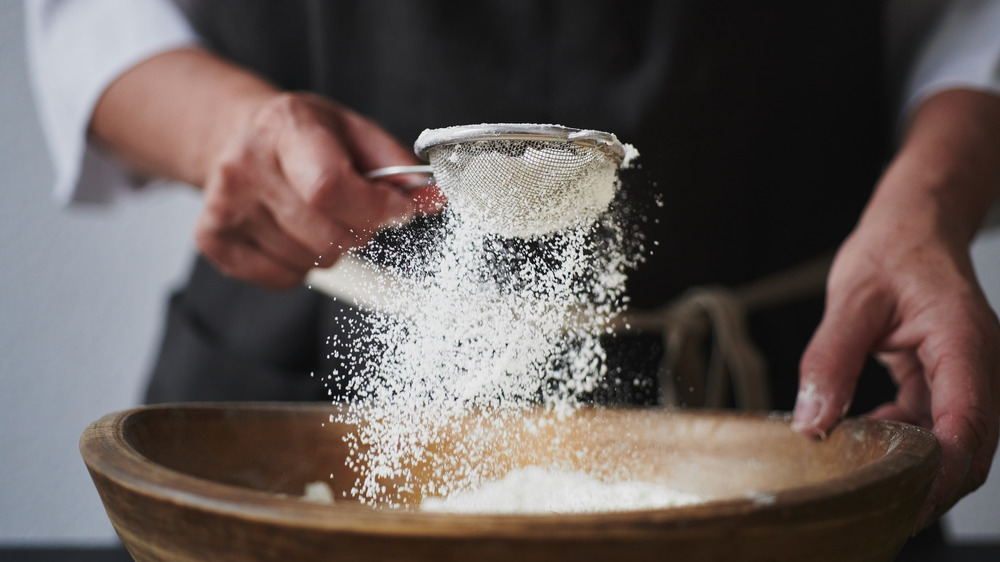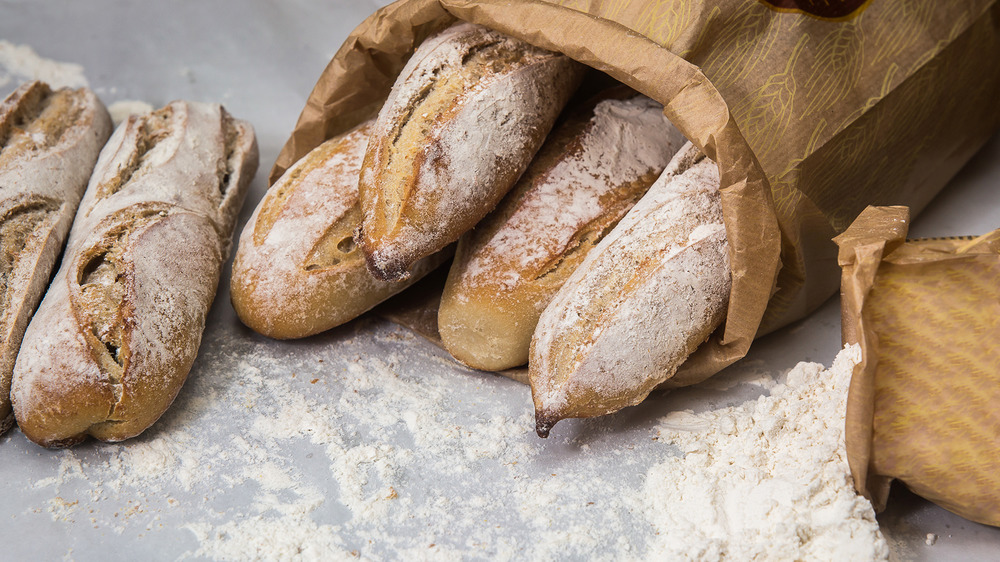Read This Before Making Anything With White Flour
White flour is in a lot of delicious things we enjoy eating like pasta, pizza, bread and donuts — just to name a few. While we know some of these meals aren't low in calories, you may not know it could also be hurting your health in other ways. According to WebMD, these types of foods have mostly been stripped of its fiber and important vitamins and minerals. This means while that fresh tomato basil pizza might taste good, it likely won't make you feel full or give you the nourishment you need.
”During the processing of white flour from wheat, a substance called endo sperm is removed from the wheat germ including the wheat bran, which is extremely crucial for your digestion," Nmami Agarwal, celebrity nutritionist, told NDTV. "Apart from that, all the essential nutrients too gets lost during this processing."
This stripping away of nutrients, will likely make us want more slices of that pizza to make the hunger pains away and can lead to weight gain. And these are just the tip of the iceberg of how white flour can be harmful to us.
Other reasons eating white flour isn't good for us
If that hasn't caused you to put your flour-based spaghetti down, these reasons might. White flour that is enriched also becomes acidic when it is digested by your body, per NDTV. This causes the body to take calcium from our bones, which can impact our bone density. Healthline reports these refined carbohydrates also cause your blood sugar to spike and increases inflammation. This can cause arthritis, chronic inflammation and other illnesses (via NDTV).
Those delicious glazed donuts could also be causing you digestive issues. White flour becomes like glue in the intestines and is very difficult to break down. This causes slow digestion that can lead to weight gain, constipation and migraines. If that isn't bad enough, it also contains an ingredient called alloxan that can cause diabetes. But wait, we have good news!
It is not all doom and gloom, if you love foods that contain flour. And who doesn't? There are many great alternatives now that taste just as good. SELF recommends using almond, coconut or quinoa flour— which is also great if you can't eat gluten. There's also a ton of other varieties out there, so don't be afraid to experiment. Healthier and more satisfying cookies could be right around the corner.

